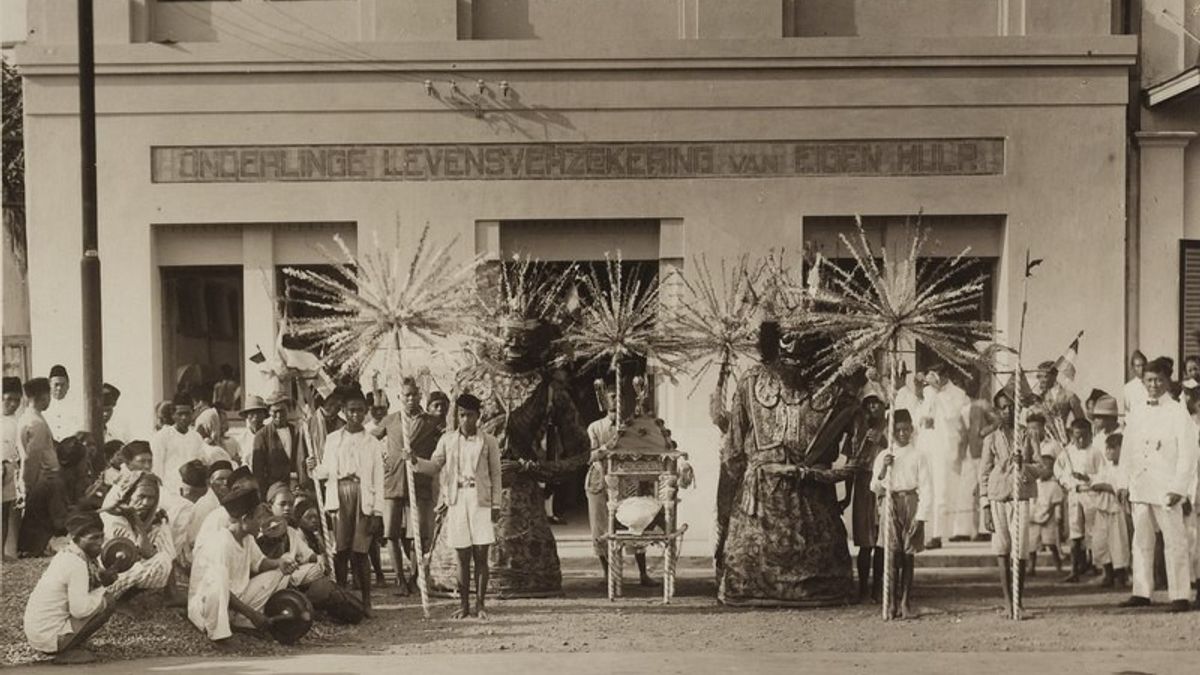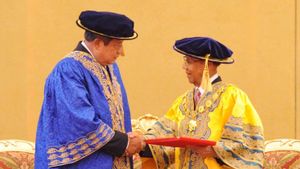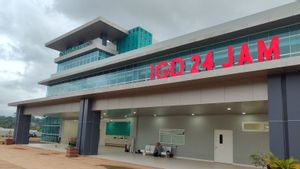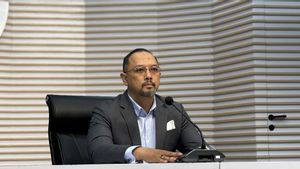JAKARTA - Life insurance and its benefits were not known in the early phase of Dutch colonialism. The only way for the Dutch to secure old age was to accumulate wealth. So that he can have fun after retiring in his hometown: the Netherlands. However, the emergence of the Ethical Policy changed everything. Life insurance with the Old Age Guarantee (JHT) was widely introduced by the Dutch East Indies colonial government. Therefore, Europeans began to look to the motherland as a home, to live and retire.
The Dutch colonialists never considered the archipelago as a home. Mother Earth is only considered a place to enrich oneself. No more. The wealth of the earth has even been taken since the era of the Dutch trading airline, VOC.
At first the VOC chose the location of the trading office in a strategic area. They immediately read the situation quickly and carefully. Whenever there is an opportunity to dominate, the VOC will not be wasted. The most obvious example is the attempt to conquer Jayakarta by the VOC in 1619. Jayakarta was conquered by the VOC through great resistance. The VOC then turned it into the city of Batavia.
The resistance was carried out in accordance with the VOC's dream of controlling trade in the archipelago. Everything that interfered with the existence of the VOC monopoly would be crushed. It was not only through war. VOC can conquer his opponent in other powerful ways. Devide et Impera (divide politics), his name.

The success of the divisive politics made the VOC able to control many of the kingdoms of the archipelago. The divisive politics made everyone submit to the VOC. Whoever can cooperate under the banner of the VOC is promised abundant profits. In fact, the benefits are sheer.
“The VOC plan is simple. Or rather ambitious. They wanted an absolute trade monopoly in the Archipelago that would be supported by the strength of the Dutch Navy. All trade commodities will be shipped by VOC ships to Europe or other ports and trading offices in Asia and the Middle East.”
“The price is set based on an agreement with local entrepreneurs or based on regulations for Dutch land tenants, as was done in Banda. To prevent private trade outside the VOC, strict rules were put in place for the people sent by the Dutch. The amount and type of luggage for people who return to their home countries is regulated,” said Jean Gelman Taylor in the book Social Life in Batavia (2009).
Accumulating Treasure
The Dutch - from ordinary soldiers to officials - who live in Batavia daily only think about profit. They perpetuate the idea that the archipelago is only a place to stop. The archipelago is only their field to enrich themselves, until finally they retire and rush back to their hometowns. This means that living settled in the archipelago was never in the Dutch life dictionary.
Moreover, they consider the archipelago as a backward place. The future is considered not bright when choosing to survive or stay for life in the archipelago. Because, the Dutch believe that their children will suffer because they do not get adequate knowledge related to education, art, and religion. As a result, they prefer to collect wealth, then take all their possessions for a spree in the Netherlands. Enjoying the old days, he thought.
“Their children were brought back to Europe because of the emptiness of life in the Dutch East Indies. They were attracted to return to the Netherlands for reasons of children's education. The colonials and civil servants stayed in Java only as temporary guests.”
"They stayed there as short as possible, just to earn a lot of money or save for retirement and return to their homeland, no regrets at the Dutch East Indies full of smiles, wide life, the most easily earned awards," said J. Chailet -Bert as written by Bernard Dorléans in the book People of Indonesia & the French, From the XVI Century to the XX Century (2006).
Insurance and JHT
The bankruptcy of the VOC became a new wind for the life of the Dutch in the archipelago. The VOC was then replaced by the Dutch colonial government in holding the leadership title since 1800. In the hands of the colonial government, economic growth in the Dutch East Indies developed rapidly. They made a lot of breakthroughs. The presence of life insurance, one of them.
The first life insurance company Nederlandsch Indiesche Levensverzekering en Liffrente Maaatschappij (NILLMIJ) was officially established in 1859. Life insurance companies and JHT exist in the form of limited liability companies.
The life insurance based in Batavia was in fact able to win the hearts of most Dutch people in the Indies. Because high-ranking officials are good at lobbying government officials. Because of that NILLMIJ was used as the only life insurance that was used for a while.
The presence of life insurance brought a new wind to the Dutch in Batavia. Those who used to want to retire and rush back to their hometowns to the Netherlands have settled in the archipelago. The availability of life insurance that is able to provide JHT is the origin. After all, all kinds of access to education were provided by the Dutch East Indies colonial government. So, there is no gap for the Dutch people not to spend a lifetime in the colony.

“NILLMIJ is growing rapidly partly because of the success of CF.W Wiggers (economist) in establishing personal relationships with the colonial government at that time. He managed to secure a monopoly on premium payments collected from government tax collectors and army payers. Thanks to the lobbying he did, the governor and commanders of the Dutch Navy also recommended NILLMIJ as an insurance company that would save the pension funds of military members in addition to the existing salary.”
“During 1859 to the 1880s, the largest source of premium income for this insurance company came from pension funds for soldiers and civil servants of the Dutch East Indies government. Later, after in 1883 the Dutch East Indies government stopped supporting in obtaining premiums, NILLMIJ began to compete directly with other life insurance companies," wrote Irvan Rahardjo in his book The Collapse of Our Insurance (2020).
The development of life insurance in the Dutch East Indies became even more massive when the Ethical Policy or the Politics of Retaliation began to take place in 1900. The Dutch felt they had a moral responsibility to raise the colony. This ethic was shown by the Dutch through a series of policies. Among other things, by carrying out a series of developments to improve the welfare of the community, especially the natives in the Dutch East Indies.
The Ethical Policy then had an impact on many European companies opening offices. So are insurance companies. Life insurance companies with JHT are mushrooming everywhere. The reason is none other than life insurance companies that are most in demand by the middle class. This condition lasted until Indonesia became independent. The Republic of Indonesia felt it was important to nationalize the nine Dutch-owned insurance companies.
"Nine Dutch life insurance companies were nationalized, including NV Levensverzekering Nillrij van 1859 Jakarta, NV Assurantie Maatschappij De Nederlanden van 1845 Jakarta (plantation insurance), Genootschap Deolveh van 1879 Jakarta, Amstleven, Nationale Levensverzekering Bank, Hollandsche Societeit van Levensvering, and Hav Bank. All these banks were merged into Asuransi Jiwasraya,” concluded Windoro Adi in his book Batavia 1740: Combing Traces of Betawi (2010).
The English, Chinese, Japanese, Arabic, and French versions are automatically generated by the AI. So there may still be inaccuracies in translating, please always see Indonesian as our main language. (system supported by DigitalSiber.id)










